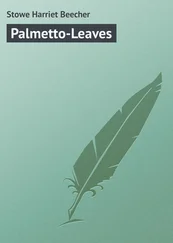Back to the evening when I sat on the basement stairs talking to Paris Keller. I told her about the letters I was writing. I don’t know why I did that. Perhaps her sheer presence, the bold, natural way she had exposed her breasts, turned the laundry room into a confessional. Perhaps I wanted her to think I was interesting in some way, that I had depths. “You put them in envelopes and put stamps on them and everything?” she asked. “You paid good money at the post office and everything?”
“Yes.”
“But you haven’t sent a one. Not one letter.”
I walked over to the metal cabinet and kicked the bottom drawer. “They’re all in here, Paris,” I said.
The clothes dryer had stopped spinning and Paris took out the T-shirt and, facing away from me, slipped it back on. “It’s my fault I was standing here looking like I looked,” she said. “But once you saw that, you made the decision to stay and talk. Polite to stay and talk, but not so polite to stare, my friend. You could’ve sat a few rungs up, huh?”
“You could’ve asked me for a spare shirt.”
“Touché,” she said. “Well, I have to get going. Your brother and I are going to the drive-in and doing stuff after.”
“Goodbye, Paris,” I said. “You won’t tell anybody about the letters, will you?”
She made a gesture like she was zipping closed her mouth with her finger. Then she comically mumbled, “Mum’s the word.”
There are certain incidents that will not allow you to forget them. The Japanese have a saying: “Rain enters your diary.” It refers to the melancholy that is forever part of your personal history. Later, you find the diary and read it and rediscover how you were experiencing life. The diary remembers for you.
When I assert that I can recall only one conversation with my father with any confident degree of accuracy, I mean it. That is because I wrote about it in a diary.
The conversation took place because my father, listening to WGRD in Dykstra’s Apothecary, had heard the announcement that I had won $666 in a contest.
I scarcely saw my older brother that summer. “Michael lives on another planet,” my mother said. “It’s right here in Grand Rapids, but it’s another planet.” He was eighteen. Black chinos, black shit-kicker boots, duck’s-ass haircut, indoor pallor. Always exhibiting a pained, wistful expression. Cut from the James Dean or Sal Mineo mold. He was working different jobs — he did groundskeeping work at a cemetery for a few weeks, for example — and the rest of the time he spent with Paris. He had an apartment on Union Street. I always wanted to see it, but I didn’t know the exact address. I thought he may have been living there with Paris. “I’d venture to guess they cohabit” is how my mother put it — her vocabulary was inventive. Truth be told, I didn’t know much about my older brother’s life at all.
As I said, my Ford was parked in our driveway, license plate and all. One morning in late July, at just after eight — the summer-camp bus had just picked up my two younger brothers at the corner and my mother had already left for work — I was eating cereal and drinking orange juice at the kitchen table, listening to WGRD. The disk jockey, “Mad Marty” Sobieski, whose morning rock-and-roll program ran from seven A.M. to noon, was gabbing away between tunes. His signature shout-out during his show was “Mad Marty’s throwin’ a party!” Sometimes he’d add, “Former president Dwight D. Eisenhower said he’d drop by, but he canceled. Oh, well, maybe next time, Ike.”
That morning, Mad Marty talked a blue streak about the “license plate lottery.” In fact, he was about to announce the first winner. The deal was, WGRD’s director of programming, at eight-fifteen sharp, would reach into a bin containing, on strips of paper, the license plate numbers of “every legally registered car in Grand Rapids, Michigan.” There was a lot of excitement at the radio station. Though WGRD was just background noise while I ate breakfast, when the winning number was announced, a bell went off in my head. I turned up the volume. Mad Marty repeated the number again and again. “If this is your license plate number, call Mad Marty right up here at WGRD, then come on down and collect the prize money of six hundred sixty-six dollars and no cents! You heard me — six hundred sixty-six smackeroos!”
By now you’ve figured out that the winning number was on my brand-new license plate. I’d memorized it because, besides my telephone number, it was the only number that meant anything to me. Still, I went out to the driveway just to make sure.
I telephoned the radio station. Then I called Pinnie Oler at home and told him my news. “I take it you’ll give at least half to your mother,” he said. “Okay, then, get downtown and become a millionaire. Take the day off work. I’ll consider it that you called in sick. See you tomorrow morning. I’m going to have to start charging you for every Nehi orange from now on.” I didn’t know what to say. Pinnie interpreted my silence. “Jesus, Howard, just kidding. Such a serious kid. Your sense of humor’s in the trash can.”
I took three connecting buses downtown to WGRD. I never thought I’d ever get to meet Mad Marty Sobieski in the flesh. He was a specter, a disembodied voice like the Wizard of Oz. Turned out he was about forty years old, wore a suit and tie and owl-eyed black-rimmed glasses and bespoke shoes. And he took all of two minutes with me.
He came out of his broadcast booth and had some lackey take a snapshot of us both holding the check. “Well, kiddo, congratulations. Don’t let all this cash give you too much of a hard-on. On second thought, you look like you could use it! Ha ha ha!” He shook my hand in exaggerated pump-handle fashion, said “Look at that scowl! Groovy. Too cool for school,” and disappeared back into his booth. I heard the beginning of “Baby Love” by the Supremes. By the time I made it to the ground floor and stood gawking at my check, the lobby’s sound system was playing “Do Wah Diddy Diddy” by Manfred Mann. And when I got on the first bus and turned on my transistor radio, Mad Marty was saying, “Two in a row by Mr. Manfred Mann — oooooh, I just can’t help myself!” And then he played “Leave My Kitten Alone.”
One day in early August at about six-thirty P.M., Paris drove up and parked in front of our house. I was sitting on the porch. “Your brother’s got the flu. He’s throwing up and complaining. Getting the flu in summer’s a real drag. Well, at least he doesn’t have to paint that house for a couple days, right? Wanna go to the movies?”
“I don’t think so.”
“Aw, come on, fuckstick.” That was her pet name for me.
“I don’t know. What’s playing?”
“ Zorba the Greek ’s supposed to be good. It’s at the Majestic.”
“You want to go to the movies with me? I don’t get it.”
“Tell me the truth. Have you ever been to the movies with a girl?”
“Nope.”
“See how easy telling the truth is with me?”
“I’d better ask my brother.”
“He suggested it, actually.”
“Still, I’d better check with him.”
“Just call him up, why don’t you?”
“Okay.”
I went inside and dialed Michael’s number, which was on a piece of paper held by a magnet on the refrigerator door. I let it ring and ring. He didn’t pick up.
Back on the porch I said, “There’s no answer. What’s Zorba the Greek about, anyway?”
“A Greek person named Zorba. His adventures.”
“What time’s the show?”
Paris was wearing jeans and a T-shirt that read ENTER AT YOUR OWN RISK. I didn’t comment, but she saw I’d taken notice. She looked at her watch. “Twenty-five minutes. We can just make it.”
Читать дальше












